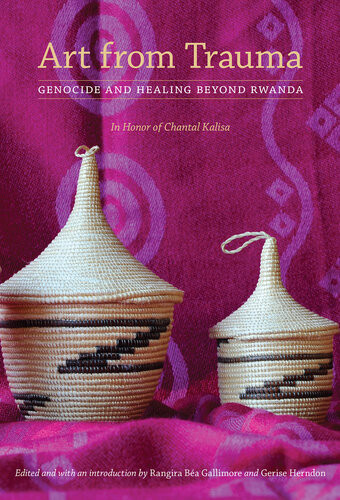

Most ebook files are in PDF format, so you can easily read them using various software such as Foxit Reader or directly on the Google Chrome browser.
Some ebook files are released by publishers in other formats such as .awz, .mobi, .epub, .fb2, etc. You may need to install specific software to read these formats on mobile/PC, such as Calibre.
Please read the tutorial at this link: https://ebookbell.com/faq
We offer FREE conversion to the popular formats you request; however, this may take some time. Therefore, right after payment, please email us, and we will try to provide the service as quickly as possible.
For some exceptional file formats or broken links (if any), please refrain from opening any disputes. Instead, email us first, and we will try to assist within a maximum of 6 hours.
EbookBell Team

4.7
106 reviewsWhat is the role of aesthetic expression in responding to discrimination, tragedy, violence, even genocide? How does gender shape responses to both literal and structural violence, including implicit linguistic, familial, and cultural violence? How might writing or other works of art contribute to healing? Art from Trauma: Genocide and Healing beyond Rwanda explores the possibility of art as therapeutic, capable of implementation by mental health practitioners crafting mental health policy in Rwanda.
This anthology of scholarly, personal, and hybrid essays was inspired by scholar and activist Chantal Kalisa (1965–2015). At the commemoration of the nineteenth anniversary of the genocide in Rwanda, organized by the Rwandan Embassy in Washington DC, Kalisa gave a presentation, "Who Speaks for the Survivors of the Genocide against Tutsi?" Kalisa devoted her energy to giving expression to those whose voices had been distorted or silenced. The essays in this anthology address how the production and experience of visual, dramatic, cinematic, and musical arts, in addition to literary arts, contribute to healing from the trauma of mass violence, offering preliminary responses to questions like Kalisa's and honoring her by continuing the dialogue in which she participated with such passion, sharing the work of scholars and colleagues in genocide studies, gender studies, and francophone literatures.